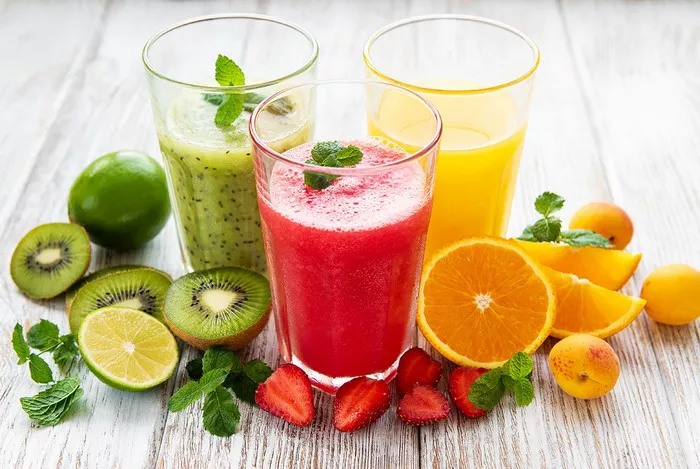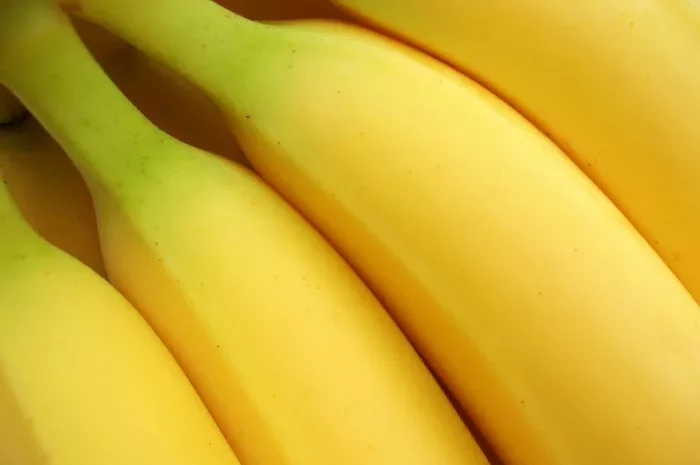Fruit juices are often perceived as a healthy beverage option, but for individuals with diabetes, making the right choice can be challenging. Diabetes, a chronic condition characterized by high blood sugar levels, requires careful dietary management to prevent complications and maintain overall health. This article delves into the complexities of choosing the best fruit juice for diabetics, considering various factors such as glycemic index, nutritional content, and the potential impact on blood sugar levels.
Understanding Diabetes and Dietary Needs
Before exploring the best fruit juice options, it’s essential to understand the dietary needs of individuals with diabetes. Diabetes can be broadly categorized into Type 1 and Type 2, with each type having distinct characteristics and management requirements.
Type 1 Diabetes: This form is an autoimmune condition where the body’s immune system attacks insulin-producing cells in the pancreas. Individuals with Type 1 diabetes require insulin therapy and need to monitor their carbohydrate intake carefully to avoid blood sugar spikes.
Type 2 Diabetes: This more common form is characterized by insulin resistance, where the body does not use insulin effectively. Management involves lifestyle changes, including diet and exercise, and often medication. Controlling carbohydrate intake and choosing foods with a low glycemic index are crucial for maintaining stable blood sugar levels.
The Glycemic Index and Its Importance
The glycemic index (GI) is a ranking of carbohydrates on a scale from 0 to 100 based on their impact on blood sugar levels. Foods with a high GI are rapidly digested and absorbed, causing a quick rise in blood sugar levels, while those with a low GI are digested more slowly, leading to a gradual rise in blood sugar.
For diabetics, choosing foods and beverages with a low to moderate GI is vital to prevent sharp increases in blood sugar levels. Most fruit juices, however, have a high GI due to the removal of fiber during the juicing process, which concentrates the natural sugars.
Nutritional Content of Fruit Juices
When selecting fruit juices, it’s essential to consider their overall nutritional content, including vitamins, minerals, and antioxidants. While the primary concern for diabetics is the sugar content, other nutrients can also play a role in overall health and diabetes management. For instance, juices high in vitamin C, potassium, and antioxidants can support immune function and cardiovascular health.
Evaluating Common Fruit Juices
Let’s examine some of the most common fruit juices and their suitability for diabetics.
Orange Juice:
Orange juice is a popular choice for its refreshing taste and high vitamin C content. However, it has a high glycemic index, typically around 66, and contains about 20-25 grams of sugar per 8-ounce serving. This can lead to rapid increases in blood sugar levels, making it less suitable for diabetics unless consumed in very small amounts and balanced with other low-GI foods.
Apple Juice:
Apple juice is another common option, known for its mild flavor and vitamin C content. It has a GI of approximately 40-50, which is moderate, but it still contains a significant amount of sugar, around 24-28 grams per 8-ounce serving. The lack of fiber also means it can cause spikes in blood sugar.
Grapefruit Juice:
Grapefruit juice is lower in sugar compared to orange and apple juice, with about 20 grams per 8-ounce serving and a GI of around 25. It is also rich in vitamin C and antioxidants. However, grapefruit juice can interact with certain medications, including some used to manage diabetes, so it should be consumed with caution and under medical advice.
Cranberry Juice:
Cranberry juice is often praised for its potential urinary tract health benefits. It has a moderate glycemic index of around 52 but is usually consumed in sweetened forms, significantly increasing its sugar content. Unsweetened cranberry juice has a tart taste but is a better option for diabetics due to its lower sugar content.
Pomegranate Juice:
Pomegranate juice is rich in antioxidants and has numerous health benefits, including anti-inflammatory properties. It has a GI of about 53 and contains approximately 32 grams of sugar per 8-ounce serving. Despite its high sugar content, the antioxidants in pomegranate juice can be beneficial, but it should still be consumed in moderation.
Tomato Juice:
Tomato juice is often overlooked as a fruit juice option, but it has several advantages for diabetics. It has a low GI of around 38, is low in sugar (about 6 grams per 8-ounce serving), and is rich in vitamins A and C, potassium, and antioxidants. These nutritional benefits make tomato juice a suitable choice for diabetics.
Best Practices for Choosing and Consuming Fruit Juices
While some fruit juices can be included in a diabetic diet, there are best practices to follow to ensure they are consumed safely and beneficially
1. Choose Whole Fruits Over Juices:
Whenever possible, opt for whole fruits instead of fruit juices. Whole fruits contain fiber, which helps slow down the absorption of sugars and provides additional health benefits such as improved digestion and satiety.
2. Dilute Fruit Juices:
Diluting fruit juices with water can help reduce the overall sugar content per serving and lower the glycemic impact. A common recommendation is to mix half juice with half water.
3. Monitor Portion Sizes:
Keeping portion sizes small is crucial when consuming fruit juices. An 8-ounce serving is often considered standard, but for diabetics, reducing this to 4 ounces or less can help manage blood sugar levels more effectively.
4. Combine with Protein or Healthy Fats:
Consuming fruit juice with a source of protein or healthy fats can help moderate blood sugar spikes. For example, pairing a small serving of juice with a handful of nuts or a piece of cheese can be beneficial.
5. Read Labels Carefully:
Always check labels for added sugars or sweeteners. Opt for 100% fruit juice with no added sugars and avoid juice blends that often contain extra sweeteners and higher carbohydrate content.
6. Monitor Blood Sugar Levels:
Individuals with diabetes should monitor their blood sugar levels regularly, especially when introducing new foods or beverages into their diet. This helps determine how different juices affect their blood sugar and allows for adjustments as needed.
Exploring Low-Sugar and Low-GI Alternatives
In addition to traditional fruit juices, there are several low-sugar and low-GI alternatives that can provide hydration and nutrition without significantly impacting blood sugar levels.
1. Vegetable Juices:
Vegetable juices, such as those made from cucumber, celery, spinach, and kale, are excellent low-sugar options. These juices are rich in vitamins, minerals, and antioxidants while having minimal impact on blood sugar levels. For added flavor, a small amount of low-GI fruit, such as berries, can be included.
2. Lemon or Lime Water:
Adding a splash of lemon or lime juice to water can provide a refreshing and flavorful beverage with very little sugar. These citrus juices are low in carbohydrates and can help support hydration and digestion.
3. Herbal Teas:
Herbal teas, either hot or iced, can be a great alternative to fruit juices. They are naturally low in sugar and can be flavored with a squeeze of lemon or a few slices of fruit for added taste.
4. Infused Water:
Infusing water with slices of fruits like berries, citrus, or cucumber can add a hint of natural sweetness and flavor without the high sugar content of fruit juices. This is a great way to stay hydrated and enjoy a variety of flavors.
The Role of Individual Preferences and Tolerances
It’s important to recognize that individual preferences and tolerances play a significant role in dietary choices for diabetics. What works well for one person may not be suitable for another. Personal preferences, cultural practices, and individual responses to different foods and beverages must be considered when recommending dietary changes.
Diabetics should work closely with their healthcare providers, including dietitians and diabetes educators, to tailor dietary plans that meet their specific needs and preferences. Regular monitoring and adjustments are key to maintaining optimal blood sugar control and overall health.
The Best Fruit Juice for Diabetics
Based on the considerations discussed, tomato juice emerges as one of the best fruit juice options for diabetics. Its low glycemic index, low sugar content, and rich nutritional profile make it a suitable choice for those managing diabetes. Additionally, tomato juice can be enjoyed in various ways, such as a base for vegetable smoothies or as an ingredient in soups and sauces, adding versatility to its benefits.
See also:what type of nuts can a diabetic eat?
Conclusion
Choosing the best fruit juice for diabetics involves a careful balance of understanding glycemic index, nutritional content, and individual needs. While many fruit juices have high sugar content and glycemic indices, there are options like tomato juice that offer lower sugar content and beneficial nutrients. By following best practices for consumption and considering alternatives such as vegetable juices and infused water, individuals with diabetes can enjoy a variety of flavorful and healthy beverages while maintaining stable blood sugar levels.
Incorporating these choices into a well-rounded, diabetes-friendly diet, and working closely with healthcare professionals, can help diabetics achieve better health outcomes and enjoy their dietary options with confidence.
Related topics:
Why Does Blood Sugar Rise Without Eating?


























